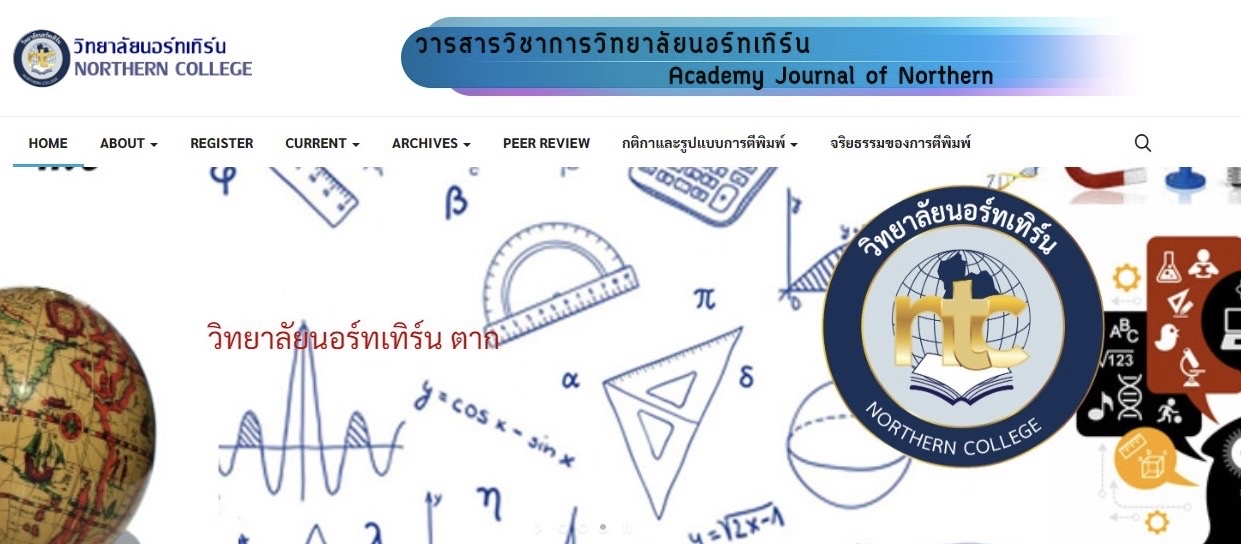Community Residents' Views on Village Development Projects According to the Sufficiency Economy Philosophy of Doi Saket District, Chiang Mai Province
Keywords:
Community Attitudes, Philosophy of Sufficiency Economy, Chiang MaiAbstract
The objective of this study was to investigate community residents' perspectives on the village development project aligned with the Sufficiency Economy Philosophy in Doi Saket District, Chiang Mai Province. Additionally, it aimed to compare these perspectives among community residents regarding village development projects guided by the Sufficiency Economy Philosophy. The study population consisted of communities with voting rights residing in Doi Saket District, Chiang Mai Province. Data collection involved administering a questionnaire to 400 individuals. Statistical analysis encompassed frequency distributions, percentages, means, and standard deviations. Hypothesis testing will employ t-test statistics and One Way Analysis of Variance, with a significance level set at 0.05. The majority of respondents were female and aged between 20 and 30 years. Among them, 166 had completed their education at the primary school level. Most earned a living from agricultural occupations, with an annual income exceeding 200,001 baht. Regarding the duration of community participation, most respondents had lived in the community for less than 10 years, although many had resided there for over 25 years. Their attitudes towards the village development project based on the philosophy of a sufficient economy were generally at a medium to high level (mean = 3.75) across all factors. The comparative analysis of attitudes towards village development based on the sufficiency economy, through hypothesis testing, revealed that villagers in the province, despite differing personal factors such as gender, age, education level, residential area, and duration of community participation, exhibited similar attitudes towards village development based on the sufficiency economy. However, significant differences in attitudes based on occupational distinctions were observed, with statistical significance at the 0.05 level.
References
กระทรวงมหาดไทย. (2561). แบบประเมินหมู่บ้านเศรษฐกิจพอเพียง. http://www.cddchiangrai.com/suffi/manual_assess52.pdf.
กลุ่มงานเศรษฐกิจพอเพียง. (2548). เศรษฐกิจพอเพียงคืออะไร. กรุงเทพมหานคร. สำนักงานคณะกรรมการพัฒนาการเศรษฐกิจและสังคมแห่งชาติ.
คณะอนุกรรมการขับเคลื่อนเศรษฐกิจพอเพียง สำนักงานคณะกรรมการการพัฒนาการเศรษฐกิจและสังคมแห่งชาติ. (2560). การประยุกต์ใช้ปรัชญาของเศรษฐกิจพอเพียง. กรุงเทพฯ. สำนักงานคณะกรรมการพัฒนาการเศรษฐกิจและสังคมแห่งชาติ.
คลังปัญญาไทย. (2549). เศรษฐกิจพอเพียง. http://sufficiencyeconomy.panyathai.or.th.
ฉลองภพ สุสังกร์กาญจน์. (2542). เศรษฐกิจพอเพียงกับวิกฤตเศรษฐกิจ. กรุงเทพมหานคร:สำนักงานคณะกรรมการพัฒนาการเศรษฐกิจและสังคมแห่งชาติ.
ขจรอรรถพณ พงศ์วิริทธิ์ธร. (2554). การตัดสินใจซื้อเครื่องสำอางของผู้ชาย. สารนิพนธ์ บริหารธุรกิจมหาบัณฑิต. บัณฑิตวิทยาลัย มหาวิทยาลัยแม่โจ้.
วิรัช วิรัชนิภาวรรณ. (2551). การบริหารจัดการตามแนวทางเศรษฐกิจพอเพียงในชุมชน. http://www.wiruch.com/articles.
นิรันดร์ จงวุฒิเวศย์. (2549). การนำแผนชุมชนไปใช้เป็นเครื่องมือในการบริหารจัดการในการพัฒนา. http://cddweb.cdd.go.th/prcdd/imagetoweb/panchumchon3.doc.
สำนักงานพัฒนาชุมชนจังหวัดเชียงใหม่ กรมการพัฒนาชุมชน กระทรวงมหาดไทย. (2560). หมู่บ้านเศรษฐกิจพอเพียงต้นแบบ จังหวัดเชียงใหม่. http://chiangrai.cdd.go.th/services/moobaansuffi.
สุเมธ ตันติเวชกุล. (2542). เศรษฐกิจพอเพียงตามแนวพระราชดำริ. กรุงเทพมหานคร: สำนักงานคณะกรรมการพัฒนาการเศรษฐกิจและสังคมแห่งชาติ.
สำนักบริหารทะเบียน กรมการปกครองกระทรวงมหาดไทย (2560). จำนวนครัวเรือน. http://service.nso.go.th/nso/nsopublish/districtList/S010107/th/36.htm.
อี เอฟ ชูมัคเกอร์.(2554). เศรษฐศาสตร์บนทางสายกลาง. http://www.siamintelligence.com/100th-schumacher-buddhist-economy.

Downloads
Published
How to Cite
Issue
Section
License

This work is licensed under a Creative Commons Attribution-NonCommercial-NoDerivatives 4.0 International License.






